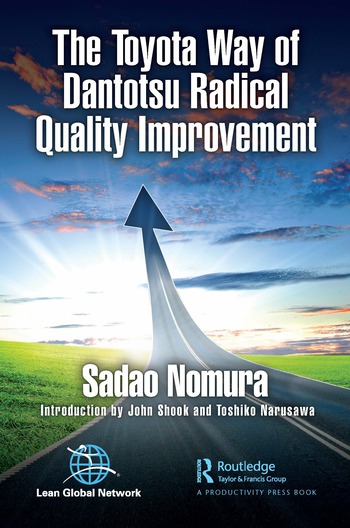After spending several years with TSSC, Toyota’s TPS outreach arm, I came to the conclusion that if I wanted to accelerate my effectiveness as a management Kaizen partner I needed to experience their world first hand. I was assigned to a 3 year rotation as a powertrain manager at Toyota’s Georgetown, KY plant. The assignment was designed for me to gain experience stabilizing an area that was challenged with over-automation, launch a major new model Camry with completely revamped Just-in-Time systems, and then kaizen the entire shop to achieve all pre-launch targets. My boss and a few others were tasked with getting me up to speed on Toyota’s systems of daily production, kaizen, new model planning and launch. Here’s the story of how things went.
My boss and I walked together in a companionable silence between buildings on the Toyota site. Being new in my role as a powertrain production manager, I was waiting to get a heads up about what to expect in my first new model launch meeting. Questions I wanted to ask were jostling around in my head. Patience, I thought, he has a lot on his mind.
On our walk “Little Pink Houses,” a song I like by John Mellencamp popped into my head. Weird, I thought. Then I realized my boss was singing. What was that about? Any chance at clarity slammed shut as we turned into a huge conference room buzzing with activity. A sea of A3s were being staged on tables and chairs. I gathered a stack of A3s off my chair, placing them with the stack on the table in front of me.
I didn’t know a soul there. He knew everyone.
As the meeting started and introductions were made, I realized my boss was the Guest of Honor. For the next hour and a half, we were in a massive review of preparations to change the Powertrain portion of a new model Camry. The only words I recognized were A, And, The, Problem, and maybe Countermeasure. I furiously scribbled down hundreds of acronyms people spewed forth. Two pages quickly became full, then three. My boss looked over at me with a scowl. Pen down.
I let the gibberish wash over me for the rest of the meeting. The meeting closed out with comments from my boss, some direction, requests, and thank you’s. My boss introduced me and said I should be ready to take over in two months. Nods, smiles, and welcomes all around, and then off we went again.
On our walk back, he commented that I seemed to be quite the note-taker. I explained that I normally wasn’t actually and handed over my scribbles to him. “What’s this?” he asked. “Everything I didn’t recognize as a word or concept,” I told him, embarrassed. He asked what it was for and I told him it was my “Discovery List” to which he replied, “Keep this up and you are going to do great.”
Back at Toyota’s on-site Powertrain plant (where I had recently been assigned as a production manager), I walked over to the lead Production Engineer. “How’d it go?” he asked. “I have no clue but, the boss seems to be happy,” I said. This was all I could come up with.
“Feeling clueless?” he asked with a furrowed brow. I handed him the pages of acronyms and terms that I gathered in the meeting, explaining that I had no idea of what any of these things meant. Scanning the notes, he looked up and smiled. “This is great, you learned a lot.” To which I replied incredulously, “What?”
“Now you know what you don’t know about what it takes to get the vehicle from the designers into mass production. First step of learning, right? Knowing what you don’t know?”
“Right. Can I have that back for a second?”
He watched as I wrote at the top of the sheet, “How can Toyota be using Mass Production and TPS at the same time?” He looked at me encouragingly and said, “Don’t worry, you’ll be a pro in no time. Besides, you aren’t doing this alone.”
“I know, I must have met 100 people today.”
“Yes, that’s the planning team. I’m talking about the field team here in this plant.”
Mentally, I added another item to my “Discovery List”.
How do YOU keep track of what you don’t know about your work (or the work to be done) yet? I’d love to hear in the comments below.





